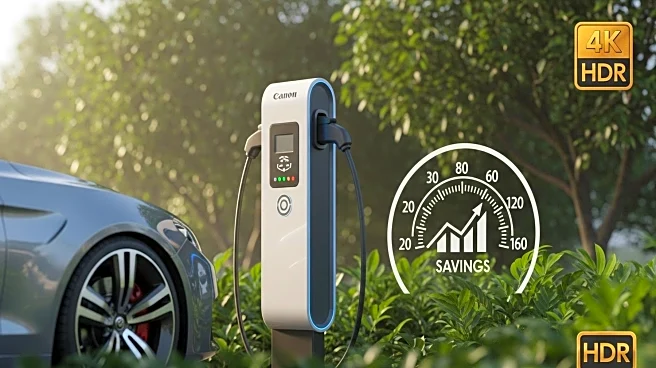What is the story about?
What's Happening?
Electric car owners in Delaware are facing new fees that are affecting their cost savings. Many drivers initially purchase electric vehicles to reduce expenses associated with gasoline. However, the state has introduced additional fees that are diminishing these savings. The fees are part of a broader initiative to address the financial implications of reduced gas tax revenues due to the increasing number of electric vehicles on the road.
Why It's Important?
The introduction of fees for electric car owners in Delaware highlights a growing challenge for states as they adapt to the rise of electric vehicles. As more drivers switch to electric cars, states are experiencing a decrease in gas tax revenues, which traditionally fund road maintenance and infrastructure projects. This development could influence other states to consider similar measures, potentially affecting the overall adoption rate of electric vehicles. The fees may deter some consumers from purchasing electric cars, impacting the market and efforts to reduce carbon emissions.
What's Next?
Delaware's decision to impose fees on electric car owners may prompt discussions among policymakers and stakeholders about alternative funding mechanisms for road infrastructure. Other states might observe Delaware's approach and evaluate its effectiveness before implementing similar policies. Electric vehicle manufacturers and environmental groups could advocate for incentives or subsidies to offset the additional costs imposed on consumers, aiming to maintain the momentum of electric vehicle adoption.















